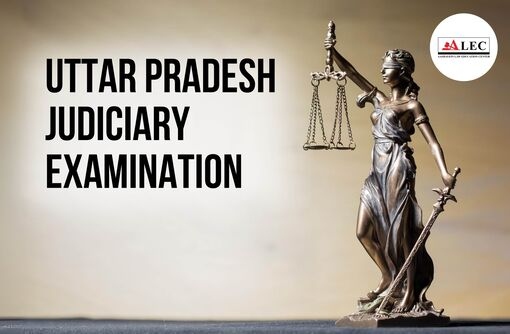Introduction
The Judicial Service Civil Judge (Junior Division) examination is conducted by the Uttar Pradesh Public Service Commission to recruit qualified candidates for the judicial services.
Eligibility Criteria
- Candidates must possess a Bachelor of Laws (LLB) degree from a recognized university in India.
- Applicants should be enrolled as advocates under the Advocate Act of 1961, or be Barristers from England or Northern Ireland, or members of the Faculty of Advocates in Scotland, and have the right to practice in court.
- A comprehensive understanding of Hindi in Devanagari script is required.
- Candidates must be citizens of India.
- To be eligible for direct recruitment, candidates must be at least 22 years old and not exceed 35 years.
For more information, visit [ALEC Enquiry].
Age Relaxation
Age relaxation is provided as follows:
- Scheduled Tribe/Scheduled Caste/OBC: 5 years
- Skilled Players of UP: 5 years
- Ex-Servicemen and Emergency Commissioned Officers: 5 years for those with at least 5 years of service.
- Physically Handicapped Candidates: 15 years
- No age relaxation is available for Dependents of Freedom Fighters.
- Government employees can apply but are not entitled to age relaxation.
Scheme and Syllabus
The examination consists of three stages:
1. Preliminary Examination (Objective and Multiple-Choice Type)
2. Main Examination (Written Conventional Type)
3. Viva-voce (Personality Test)
For a deeper dive into the law, don't miss our must-visit pages: Latest Judgments and Blogs!
Prelims Exam
The syllabus focuses on General Knowledge and Law.
- Each paper lasts 2 hours.
- Maximum marks: Paper I - 150, Paper II - 300.
- A penalty of 1/3 marks is deducted for each incorrect answer.
Preliminary Examination Syllabus
Paper I: General Knowledge (150 Marks)
- History of India and Indian Culture
- Geography of India
- Indian Polity
- Current National Issues and topics of social relevance, including:
- Rights of Persons with Disabilities Act, 2016
- Maintenance and Welfare of Parents and Senior Citizens Act, 2007
- Dowry Prohibition Act, 1961
- Protection of Women from Domestic Violence Act, 2005
- Sexual Harassment of Women at Workplace Act, 2013
- Protection of Children from Sexual Offences Act, 2012
- India and the World
- Indian Economy
- International Affairs and Institutions
- Developments in Science and Technology
Paper II: Law (300 Marks)
- Jurisprudence
- International Organizations
- Current International Affairs
- Indian Constitution
- Transfer of Property Act
- Indian Evidence Act
- Indian Penal Code
- Civil Procedure Code
- Criminal Procedure Code
- Contract Act
Mains Exam
The mains exam syllabus includes Language papers, General Knowledge, and Law papers.
Mains Examination Syllabus
Paper I: General Knowledge (200 Marks)
- Same topics as in Prelims
Paper II: English Language
- Essay: 50 Marks
- Precis Writing: 30 Marks
- Translation (Hindi to English): 20 Marks
Paper III: Hindi Language
- Essay: 50 Marks
- Precis Writing: 30 Marks
- Translation (Hindi to English): 20 Marks
Paper IV: Law – I (Substantive Law) (200 Marks)
- Law of Contracts
- Law of Partnership
- Easements and Torts
- Transfer of Property
- Equity Principles
- Trust Law and Specific Relief
- Hindu Law
- Mohammedan Law
- Constitutional Law
Paper V: Law – II (Procedure and Evidence Law) (200 Marks)
- Law of Evidence
- Code of Criminal Procedure, 1973
- Code of Civil Procedure, 1908 (including principles of pleading)
Paper VI: Law – III (Penal, Revenue, and Local Laws) (200 Marks)
- Indian Penal Code, 1860
- Uttar Pradesh Revenue Code, 2006
- Urban Building Regulation Acts
- Panchayat Raj Act, 1947
- Consolidation of Holdings Act, 1953
- Urban Planning and Development Act, 1973
Note: The question set will primarily address practical matters such as charge framing, evidence handling, judgment writing, and case conduct. Questions related to Local Laws will be compulsory.
Interview
The interview carries a weight of 100 marks, assessing candidates' suitability for the Uttar Pradesh Judicial Service based on merit, character, personality, and physical fitness. The interview marks will be combined with written examination scores to determine overall ranking. The Commission reserves the right to refuse interviews to candidates who do not achieve sufficient marks in the Law Papers.
For more information, visit [ALEC Enquiry].
You can also download it using the link below for free
U.P Syllabus

